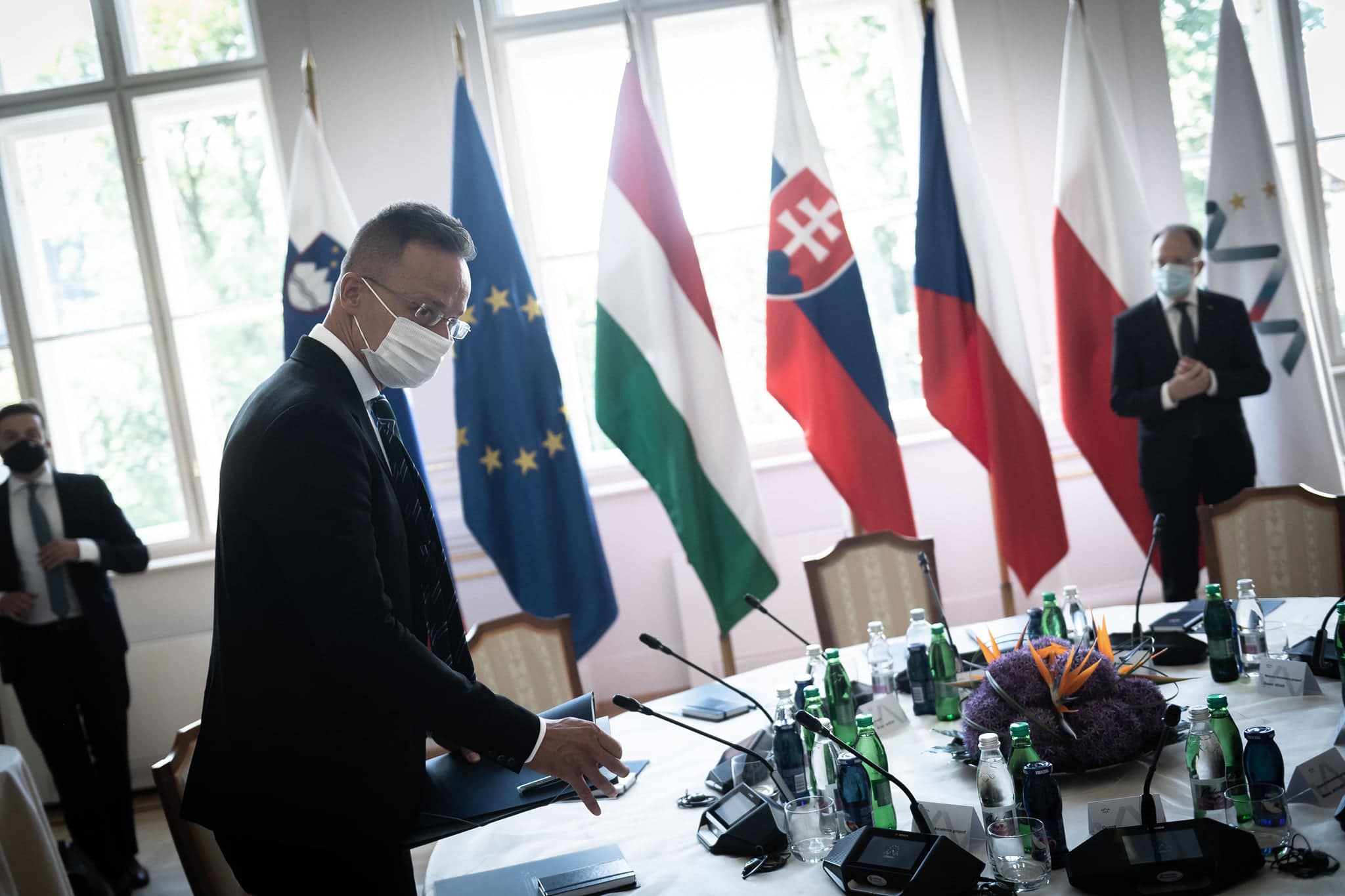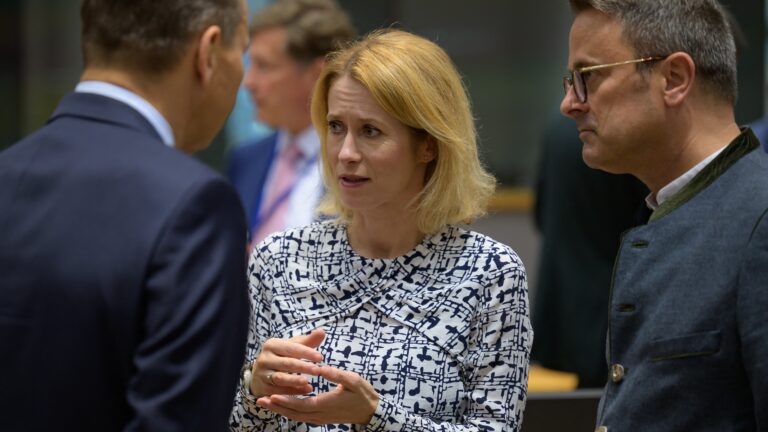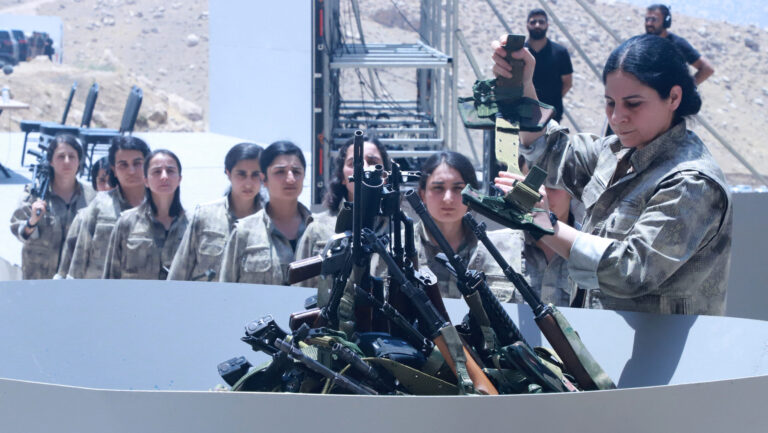Following the 30th anniversary of the Visegrád Group in February 2021, Hungary has taken over the annual presidency of the regional platform from Poland as of 1 July. The Hungarian government has to navigate the V4 countries in rather challenging times, tasked, among other things, with coordinating the reopening of the economy, building resilience to crisis situations, and addressing global and European security risks. In doing so, Budapest will also have a great opportunity to shape the agenda and decision-making to best advance its own national and common regional interests in both Brussels and outside the EU with other international partners.
The strength of Visegrád
After thirty years of regional intergovernmental cooperation, the Visegrád platform seems to be the most dynamically developing group of member states within the European Union, both in terms of political significance and policy-making. The intensity of cooperation shows variations over time, with some fields and issues appearing more suitable for taking a joint position, while others remain rather more divisive. For instance, migration falls into the former category, issues relating to Russia into the latter. In addition, the use of the regional platform depends on the preferences of the four governments at any given time: if they see the Visegrád format as a valuable and useful tool for advancing their own interests and agenda, cooperation becomes more intense, and if they do not, then the inverse is true. By using the Visegrád framework, the four governments’ overarching goal is to improve their visibility and influence in the EU arena.1 This is achieved through enhanced coordination between the four governments, manifested in regular formal and informal meetings ranging from the expert level to high politics (i.e. prime ministers and presidents). The system of ‘V4 mini summits’ before European Council meetings has become a tradition and symbol of practical cooperation and solidarity between the governments of the Czech Republic, Hungary, Poland, and Slovakia. Indeed, the opportunities for efficient interest representation have improved a lot in recent years, supported by the significant political weight primarily achieved by the Visegrád countries in the debate on migration. Representing roughly 65 million EU citizens, the Visegrád Group now has a say in a number of political and policy issues at the EU level. This increased significance gives the V4 the chance to shape key policies at crucial times.
Recharging Europe
Despite its low level of institutionalization compared to other regional platforms (e.g. the Benelux Union, the Nordic Council), the Visegrád Group has two important institutional elements: the rotating one-year presidency and the International Visegrád Fund (IVF). The presidency gives the government which holds it the opportunity to set the agenda and coordinate common action. The current Hungarian presidency is the sixth in the history of the platform. Its slogan ‘Recharging Europe’ seems an intelligent and justified choice on the part of the Hungarian government in the midst of the coronavirus crisis. The 38-page document, Programme of the Presidency, is organized into three larger chapters, entitled ‘Stability’, ‘Reopening’, and ‘Partnership’.2 According to tradition, V4 presidencies follow the agenda of the preceding presidency (to ensure continuity), and naturally new issues also emerge. This is exactly the case with ‘Recharging Europe’. Goals presented under the chapter ‘Stability’ include taking a common position at the conference on the future of Europe, centred around the importance of strategic thinking, respecting the Treaties and the culture of inclusiveness, transparency, and consensus. All four governments are interested in a reinforced EU based on strong member states with a clear-cut division of competences and mutual respect. Similarly, overlapping interests can be identified with regard to the Multiannual Financial Framework and the Next Generation EU fund. Taking a coordinated position can help the four governments negotiate larger amounts for themselves and for the region as a whole. Security, defence policy and military cooperation are also addressed in the programme, all presented in detail. The broader field of security includes migration-related issues, border protection, and the fight against pandemics. Defence policy and military cooperation promise some very concrete results for the future, including the V4 EU Battlegroup (EU BG), the V4 Joint Logistic Support Group Headquarters (JLSG HQ), and various joint exercises, all these within the framework of NATO. Overall, stability is based on the close cooperation of the four countries on some key issues, and centred around the concept of resilience.
Gerhard Papke was born in 1961 in Recklinghausen, Germany. He graduated from the University of Bochum, where he studied political science, economic history and international law. He first worked for the economic policy section of the FDP and later became the party’s parliamentary leader from 2005–2012 and vice-president of Parliament from 2012–2017, but did not stand again at the end of the 2017 parliamentary term because of the disagreement with Christian Lindner’s political line. Papke has been President of the German-Hungarian Society in the Federal Republic of Germany since 2019.
As for the economy, the issues covered include the promotion of economic growth, the building of a green and circular economy, digitalization, the enhancement of competitiveness, the reduction of regional socio-economic disparities, the better management of government debts and public finances, the improvement of export financing, energy security and infrastructure, and the strengthening of climate protection and sustainability. According to the document, reopening in the social sphere refers to the revitalization of the tourism sector, the management of demographic challenges, increased support for the mobility of the youth in the four countries, and the strengthening of educational, cultural, sports, and health cooperation.
Beyond business-as-usual cooperation between the Visegrád countries, the chapter ‘Partnership’ foresees a greater role for the so-called V4+ platform, with other partners joining in from time to time. They could include Slovenia and France, as the member states holding the presidency in the Council of the European Union over the next year, Germany, the United Kingdom, the Benelux states, the Nordic and Baltic countries, and partners from outside Europe (Japan, Korea, Israel, and Egypt). In this respect, two priorities remain on the agenda of the Hungarian V4 presidency: promoting the European integration of the states in the Western Balkans, and implementing projects related to the Eastern Partnership. These aim to strengthen the strategic position of the Visegrád countries in the broader region.
The issue of migration: is debate heating up again?
Particular attention should be paid to the issue of migration, since the currently improving pandemic situation in Europe—in parallel with deteriorating health, social, and economic conditions in key sending and transit countries due to COVID—is fuelling illegal migration to the continent. According to the latest Frontex data, a total of more than 61,000 illegal border- crossings were registered at the external borders of the EU in the first six months of 2021.3 Increased migratory traffic and pressure on the Western Balkan route directly impacts Hungary, but the adverse consequences of mass immigration are rejected by the other three Visegrád states as well. Therefore, their firm stance will continue to be the basis for cooperation on this issue. And seeing the Commission’s New Pact on Migration and Asylum,4 smart manoeuvring will be necessary in the upcoming period to prevent the adoption of any element that is unacceptable to the Visegrád countries (in both the Council and the European Parliament). In practice, this essentially refers to the forms of ‘mandatory solidarity’ specified by the Pact, including the relocation of asylum seekers, which, hough not de jure mandatory, can become de facto mandatory in a situation of crisis. The majority of ‘old’ member states still treat the issue as a humanitarian one above all, and the social and security aspects will continue to be emphasized by a minority of governments in the EU. However, the Visegrád countries are no longer alone in the latter group: Austria and Denmark are also reluctant to accept any form of relocation. At the same time, however, the securing of external borders is supported by a larger number of member states, and efforts aimed at the more effective implementation of repatriations are also widely welcomed.
This gives the Visegrád countries some hope. At the same time, it is telling that neither the German nor the Portuguese presidency was able to advance the migration dossier in the Council; the task now lies with the Slovenians.
Prospects for the Hungarian V4 Presidency
Hungary holds the Visegrád presidency in a critical period when key issues, such as the debate on the future of Europe, increasing security risks, or re-strengthening migratory pressure are overshadowed by the prolonged socio-economic consequences of the pandemic. Despite this challenge, boosting regional cooperation can bring a real chance to impact these processes. The agenda and efforts of Budapest can be supported by the Slovenian EU presidency, since the Slovenians have a better understanding of our region, and thus have more in common with our narrative and position. Besides, Slovenian PM Janez Janša has a cordial relationship with Viktor Orbán, which can also improve the efficiency of the V4’s interest representation activity. However, according to past experience, EU presidencies usually strive to meet the expectations of Brussels, and engage in continuous consensus-seeking. We should also notice how the escalating debates between the EU on the one hand, and Poland and Hungary on the other have degraded the political landscape. Under such circumstances, Hungary is very interested in extending and deepening the Visegrád cooperation and seeking additional allies in the EU arena. With the V4 presidency at its back, the chance is there to be seized.
1 Sándor Gallai, A nagyok ligájában: a magyar V4-es elnökség szerepéről (In the Big League: On the Role of the Hungarian V4 Presidency) (Corvinák, 2021), https://corvinak.hu/itthon/2021/07/02/a-nagyok- ligajaban-a-v4-es-elnokseg-szereperol, accessed 20 July 2021.
2 Recharging Europe—Hungarian Presidency of
the Visegrád Group 2021/22, Programme of the Presidency, https://v4.mfa.gov.hu/asset/view/139043/ Programme_of_the_HU_V4_Presidency_2021-22. pdf, accessed 20 July 2021.
3 ‘Situation at EU Borders in June—Detections Risen Central Med.’, Frontex, 13 July 2021, https:// frontex.europa.eu/media-centre/news/news-release/ situation-at-eu-borders-in-june-detections-rise-in- central-med-Ffo70f, accessed 20 July 2021.
4 ‘Migration and Asylum Package: New Pact on Migration and Asylum Documents Adopted on 23 September 2020’, European Commission, https:// ec.europa.eu/info/publications/migration-and- asylum-package-new-pact-migration-and-asylum- documents-adopted-23-september-2020_en, accessed 20 July 2021.








